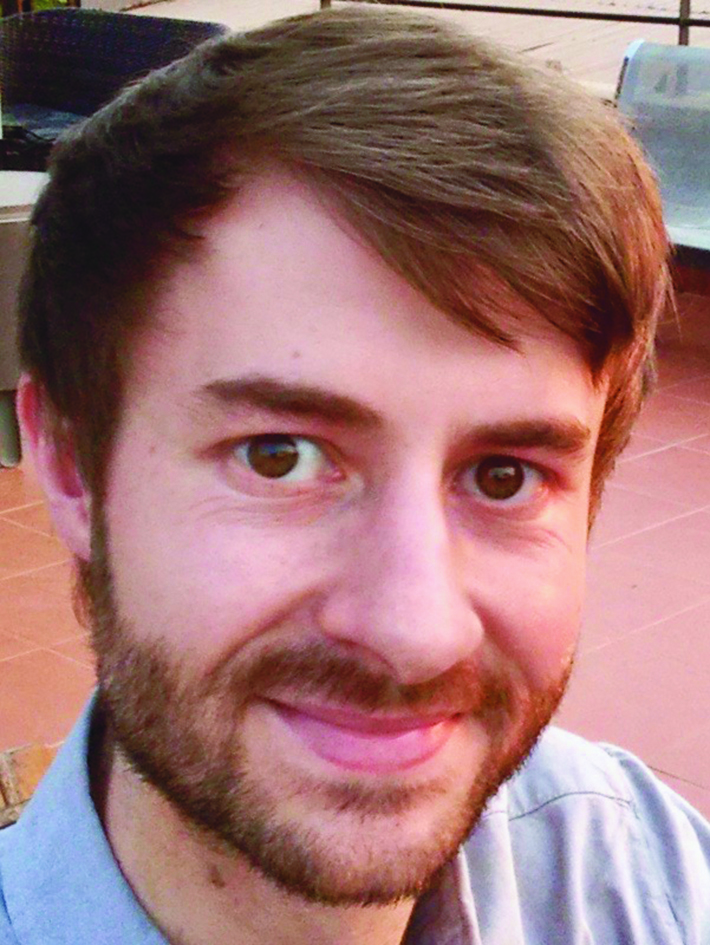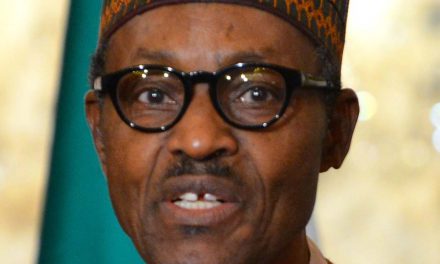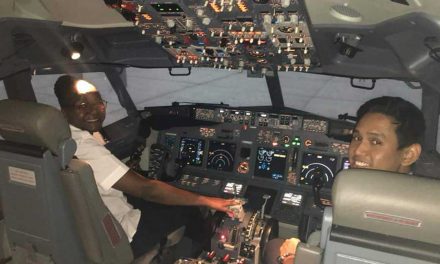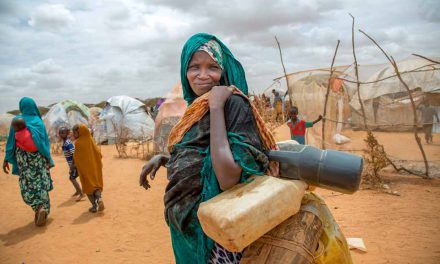West Africa: lessons from Ebola
Understanding why people resisted disease containment measures during Ebola outbreaks is critical in the handling of COVID-19 in DRC
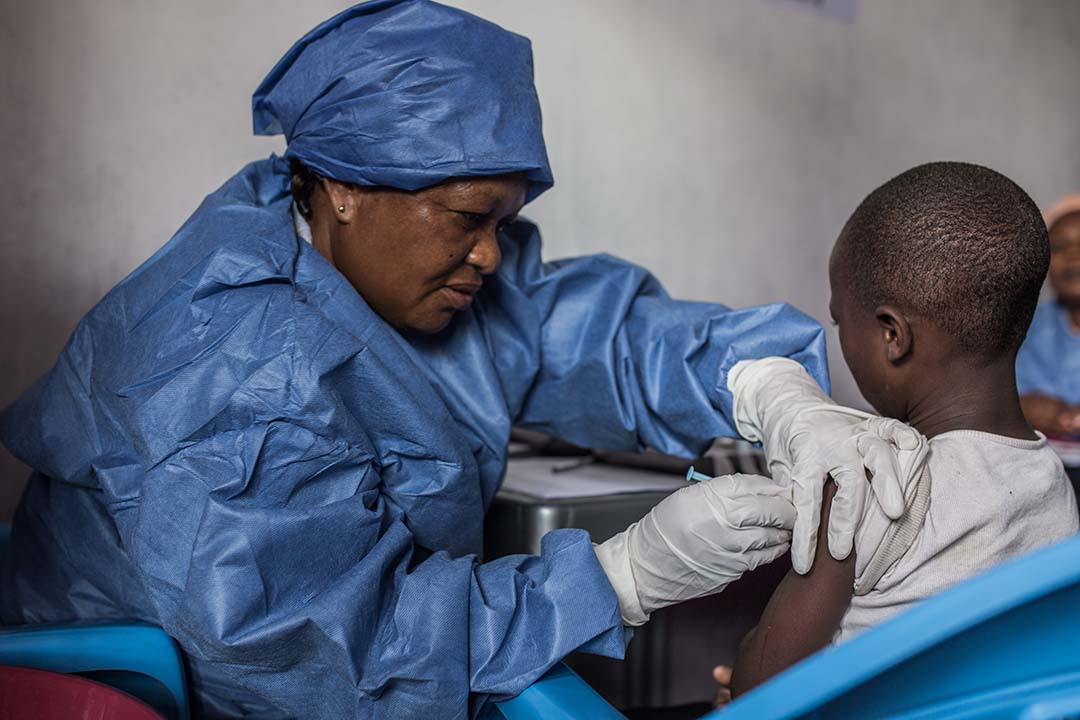
A young girl is innoculated with an Ebola vaccine in Goma, Democratic Republic of Congo, 2019 Photo: Pamela Tulizo/AFP
The first case of COVID-19 was reported in Democratic Republic of Congo (DRC) on 10 March 2020, at a time when its health system was already overstretched with battling its 10th Ebolavirus (Ebola) outbreak as well as severe measles and cholera outbreaks – all in a context where ongoing armed violence has left millions of people displaced and vulnerable. The 10th Ebola outbreak was first detected in August 2018, and it spread across eastern DRC and reached neighbouring Uganda. It was the world’s second deadliest after the one in West Africa from 2014-2016, killing 2,287 people. A total of 303,000 people were vaccinated by the end of the outbreak, in the first major rollout of the experimental Ebola vaccine, according to the World Health Organization (WHO).
Weeks before the 10th outbreak ended, an 11th broke out in Equateur province in northern DRC and was ongoing at the time of writing. The DRC Government and aid organisations have been criticised for repeated failures in their handling of these health crises. The 10th outbreak response was “a systematic and catastrophic failure that left thousands dead,” writes Karline Kleijer, Head of Emergencies at Médecins Sans Frontières (MSF, or Doctors Without Borders), one of the aid organisations involved in the response, in a blog post on the MSF website in March. “Too much focus was placed on containing the virus instead of supporting the affected people. And without the trust of the community, we set ourselves up to fail the people of DRC.”
Investigations by the New Humanitarian, a non-profit news organisation that specialises in covering conflicts and crises, have exposed how aid money for the response was siphoned off through corruption and profiteering in what became known as the “Ebola business”. The deployment of police and military personnel to enforce containment measures has also been criticised. These and other failings contributed to community distrust and resentment, which erupted in more than 300 recorded attacks on health workers in 2019. Nonetheless, despite the many failings, there are signs that aid organisations are learning lessons that could improve responses to current and future health crises, particularly through better use of data and research to inform, reorient and adapt response operations.
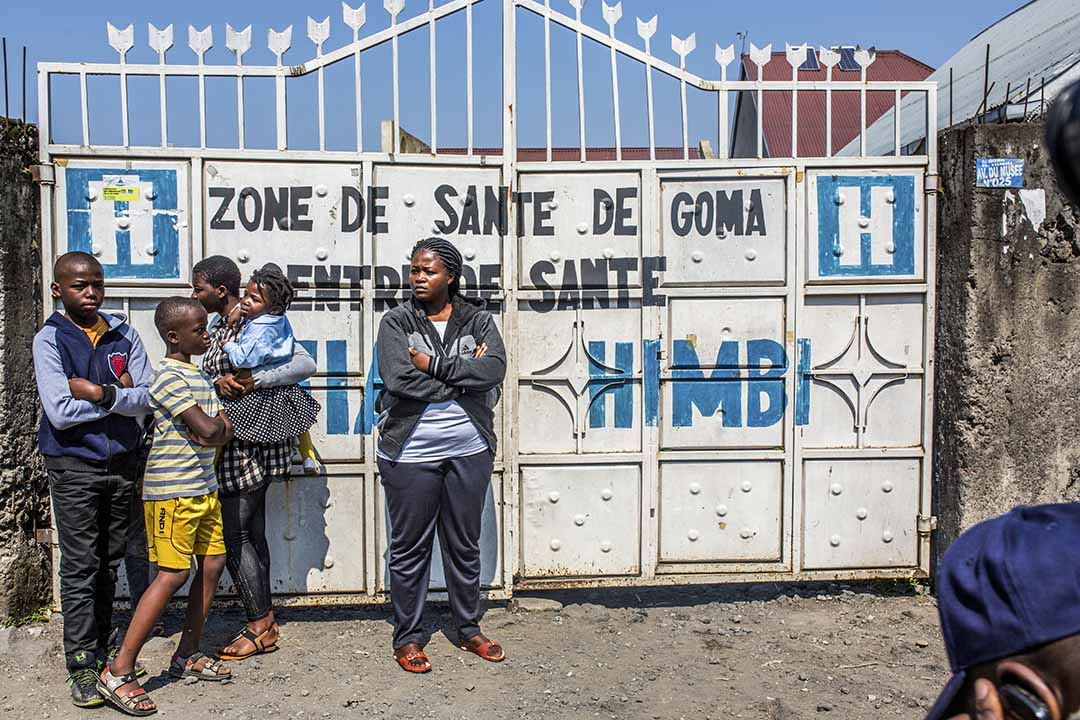
Residents wait to receive a vaccine against Ebola at the Afia Himbi Health Centre in Goma, July 2019 Photo: Pamela Tulizo/AFP
Understanding and changing people’s behaviour is critical for containing infectious diseases like Ebola and COVID-19. Recognising this, the DRC Ministry of Health, the WHO, UNICEF and other aid organisations created a research unit called the Cellule d’analyses en sciences sociales (Social Science Analysis Cell, or CASS) in June 2019 to support the Ebola response. According to its manager, Simone Carter, CASS conducts research on behaviours and perceptions to generate real-time data and recommend how to improve the response as an outbreak evolves. It focuses on understanding health-seeking behaviours during crises, (i.e., why and how people in communities affected by a disease do, or do not, seek healthcare), and why some communities are hit worse than others.
CASS reports that it conducted 57 field studies and produced 112 recommendations (in consultation with the Ministry of Health and other organisations involved in the response) over the course of the Ebola outbreak. So far, 86 of those recommendations have been acted on, translating into significant changes in response operations. Part of its research focused on understanding why people in affected communities resist disease containment measures. For example, after CASS research established that families of people infected with Ebola were refusing to have their houses decontaminated because sanitation teams were unknown to their communities, the response teams began training local community members on decontamination practices.
Similarly, CASS research found that families were refusing to allow their relatives to be buried in specially designed bio-secure burial bags because they believed it would trap the deceased’s spirit. Following consultations with local community members, to overcome this, CASS recommended that frontline staff leave the bag open for a period of time before burial (which is still considered safe). Other research has focused on understanding how affected communities perceive and respond to the ways in which response operations communicate with them. One disturbing finding was that public communication materials were causing people to delay seeking treatment.
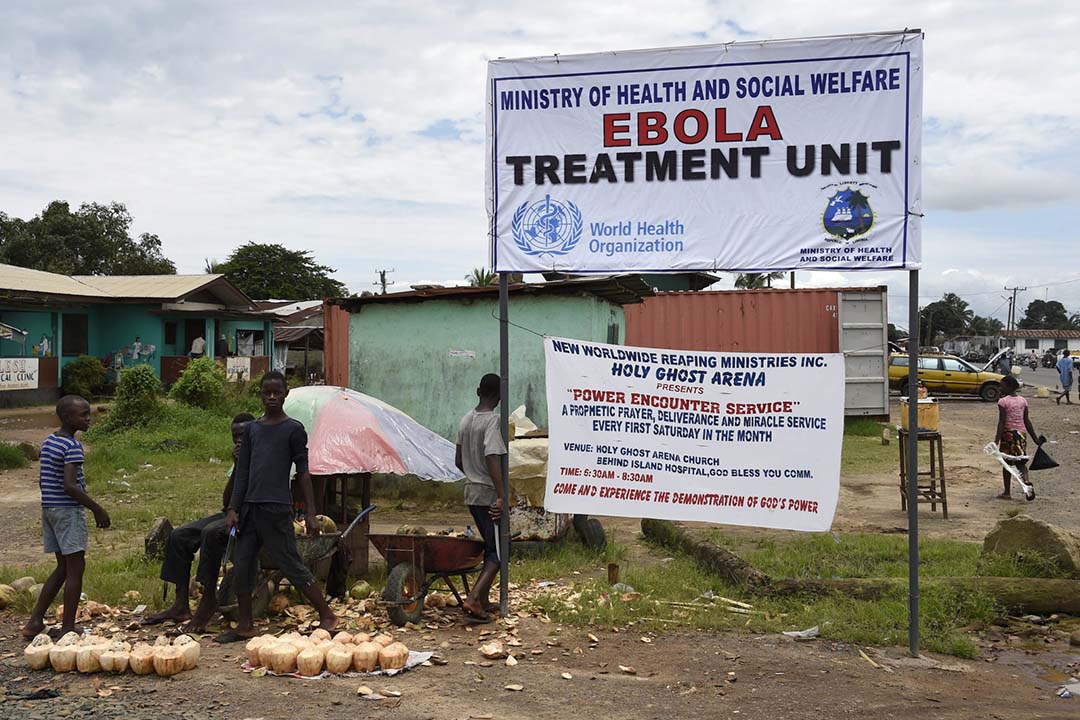
Boys sell coconut milk near the Ebola treatment unit in Monrovia, Liberia, 2014 Photo: Pascal Guyot/AFP
The materials only depicted advance-stage symptoms of Ebola (such as haemorrhaging and vomiting), so people were only seeking treatment when they showed these symptoms and not early-stage symptoms such as fever, muscle pain and headaches, which they associated with other conditions. A delay of five or more days in seeking treatment has been found to double the likelihood of death. According to Carter, one of CASS’s earliest and most significant breakthroughs was identifying that response teams were not counting pregnant and breastfeeding women in their surveillance activities, nor providing them with psychological-social support, because they were not eligible for the vaccine. Some women had even stopped breastfeeding to get the vaccine.
After advocacy by CASS and others, the vaccination protocol was extended in June 2019 to include pregnant and breastfeeding women. Certain features of the CASS model could lend themselves to being replicated in the COVID-19 context and in future health crises, both in DRC and elsewhere in sub-Saharan Africa. Perhaps the most important lesson to be learnt from the CASS experience lies in its institutional model. Carter notes that CASS’s status as a discrete unit, reporting directly to the Ministry of Health, with a research mandate covering all aspects of the response, has given it greater influence over operations than it would have wielded if assigned to the part of the response dedicated to community engagement.
It shares equal standing and works closely with the epidemiological research unit. Within this institutional context, CASS positions itself as a demand-driven service, designing its research in consultation with a broad selection of the organisations involved in the response, and only launching studies once demand has been tested and validated. It monitors uptake of its research with an open-access online tool to improve efficiency and accountability. CASS’s late introduction, almost a year into DRC’s 10th Ebola crisis, may have compromised its recognition by some organisations. Nonetheless, its position at the centre of the response shows the importance given to behavioural research, in a marked departure from previous approaches. Challenges with staffing also limit the potential replicability of the CASS model.
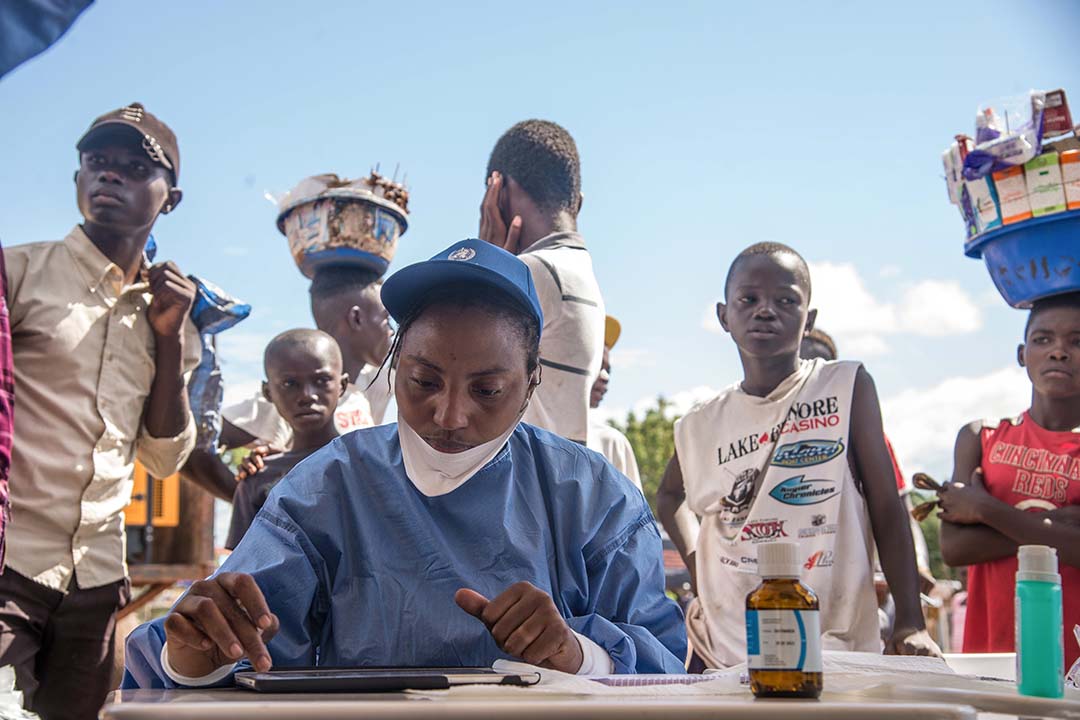
Nurses working with WHO prepare to administer Ebola vaccines in Mbandaka, DRC, 2018 P hoto: Junior D Kannah /AFP
It needs researchers from a mix of social science backgrounds who are willing to stay for the duration of an outbreak or multiple outbreaks, so as to monitor behaviours and reorient the response as the situation evolves. Yet, with only one peer-reviewed article published to date, it may struggle to attract ambitious researchers looking for shorter assignments and publications to fill up their CVs. The COVID-19 context presents further challenges because the disease is more infectious but less deadly than Ebola, meaning it spreads more rapidly and reliable epidemiological data are scarcer. The CASS team is testing ways to fill this gap through multidisciplinary studies that use data from market studies and other sources to track the impact of the disease on health-seeking behaviours.
The barriers to behaviour change are also greater in the COVID-19 context. The DRC government introduced strict measures to contain the rapid spread of the coronavirus, including a three-month lockdown in Kinshasa. But, as Justin Makangara, a Congolese photojournalist and blogger, observes, this has imposed greater restrictions on freedom and higher economic costs to individuals than measures taken to contain Ebola, while the reported human cost is relatively lower. Kinshasa residents perceive the lockdown measures as an imposition of other people’s priorities over theirs, and that their needs are not being heard or addressed. “The government shuts down markets and schools, and tells people to stay at home, but there is no electricity,” Makangara noted.
“So people say, ‘If I stay at home, what do I eat?’” Public communications are failing to explain how the ends justify the means. The government released inaccurate statements at the onset of the outbreak (containing incorrect information about the origins of the first patients). It has since failed to catch up and counter false rumours that the disease is a hoax invented by the government and aid organisations seeking a new vehicle to continue their “Ebola business”. Experience from Ebola has shown that better social sciences data of the like produced by CASS could help to understand affected communities’ needs, perceptions and behaviours, and to develop better adapted containment measures and communications that will produce the behaviour changes needed to combat the disease.
Improved understanding of behaviours and events could be used to develop more targeted, localised and flexible containment measures instead of blanket lockdowns that bear high economic costs. Still, no matter how good the data, the Ebola experience has shown that people will only change their behaviour if they can trust the messenger and feel their voices are being heard.

